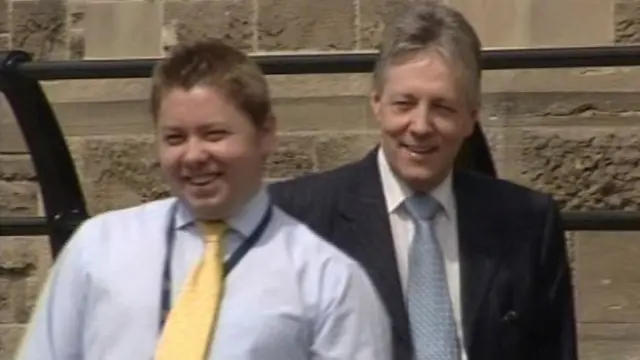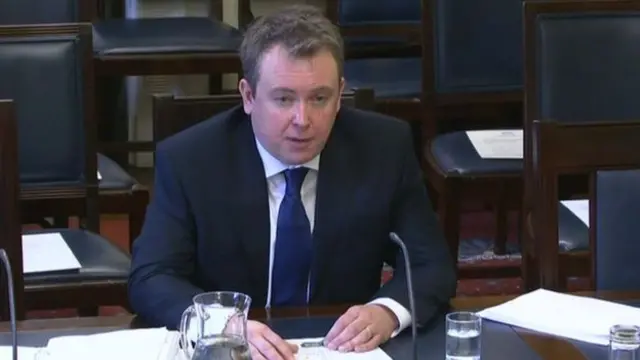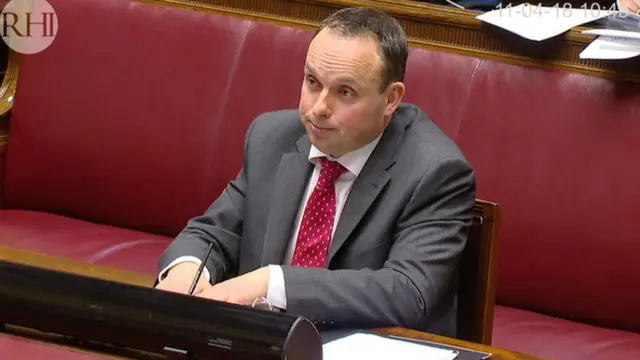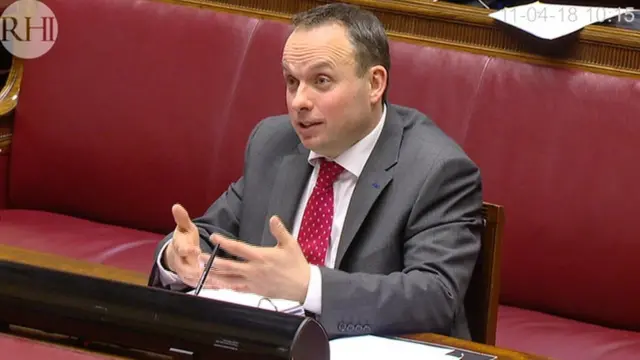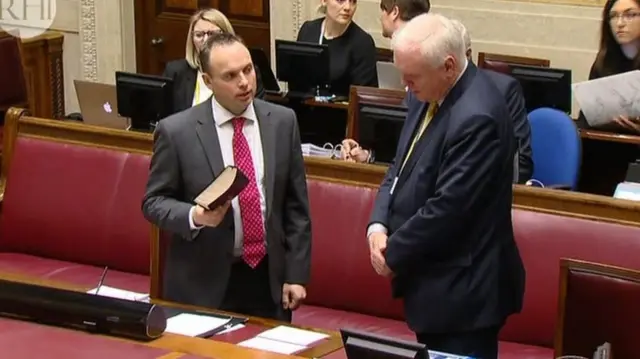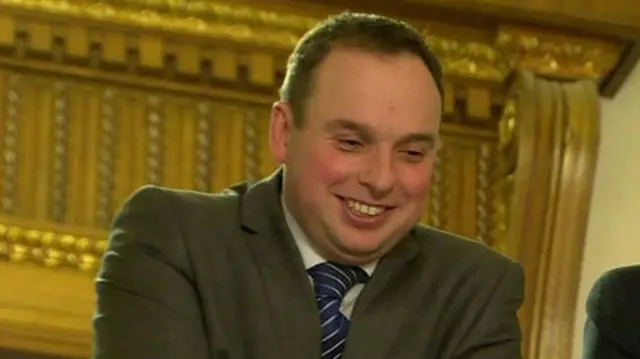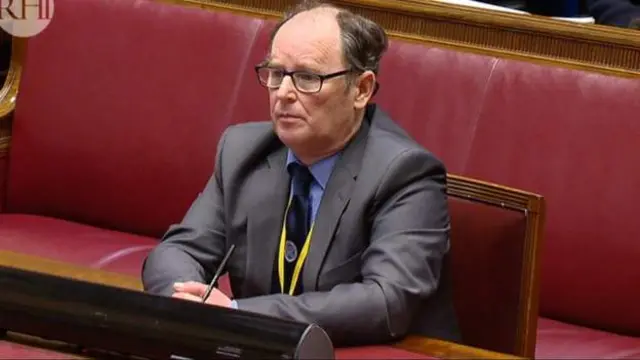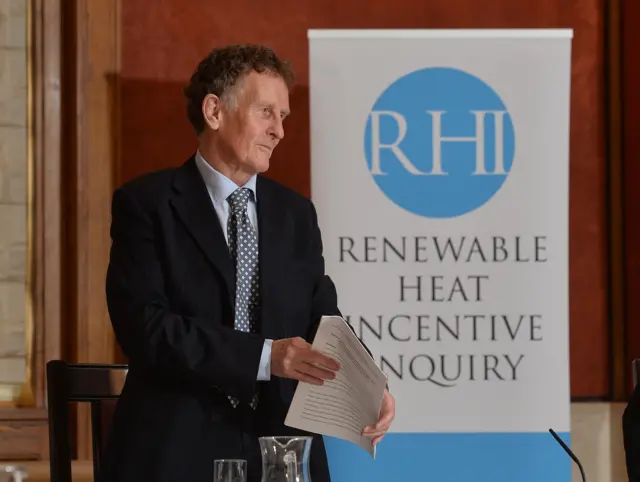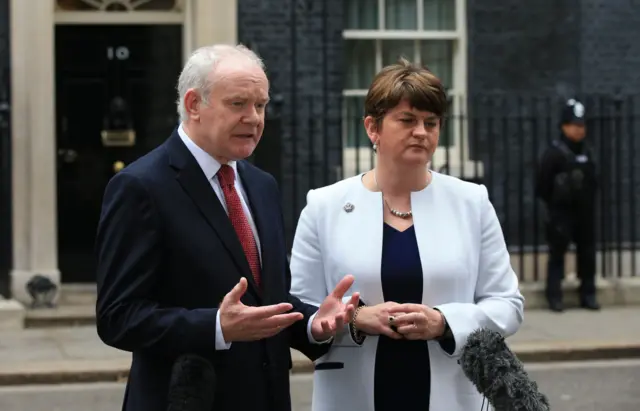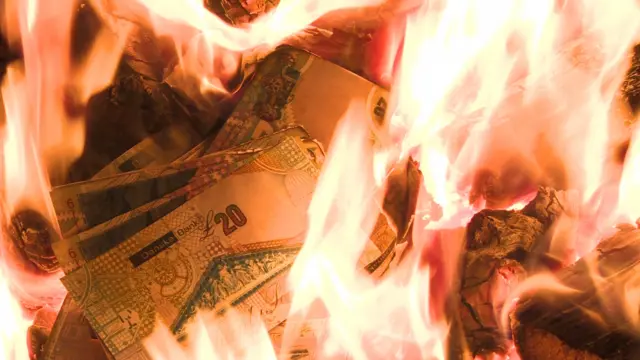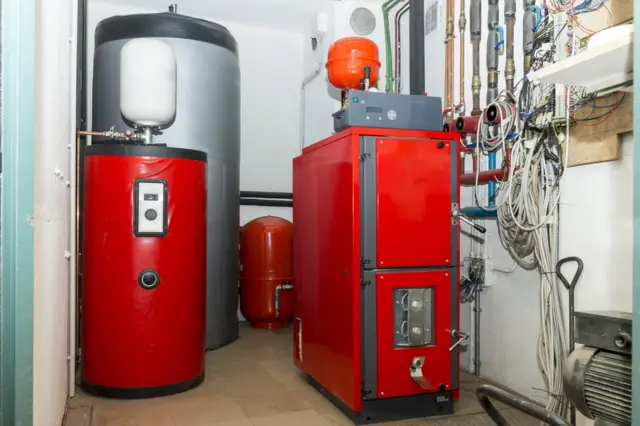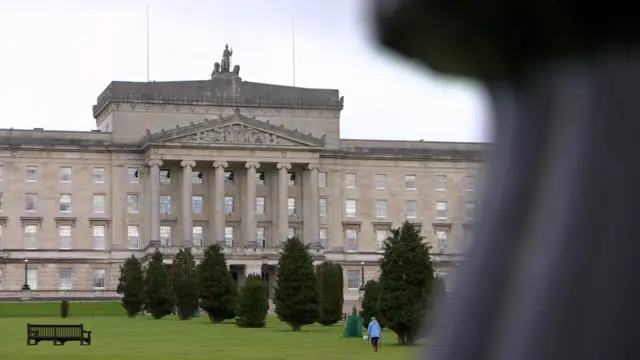'I owed no duty to the DUP'published at 11:35 BST 11 April 2018
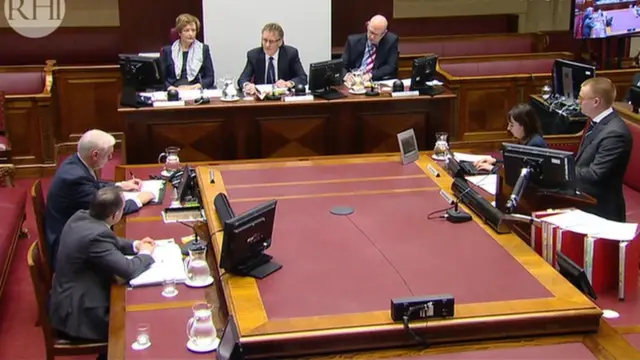 Image source, RHI Inquiry
Image source, RHI InquiryDr Crawford tells the inquiry owed no duty to the DUP in his role as a ministerial adviser.
He says was appointed by the minister to work as an adviser - he wasn't appointed by the party.
He was working for the minister and the department "rather than others, for example policy staff who would have been employed by the DUP".
